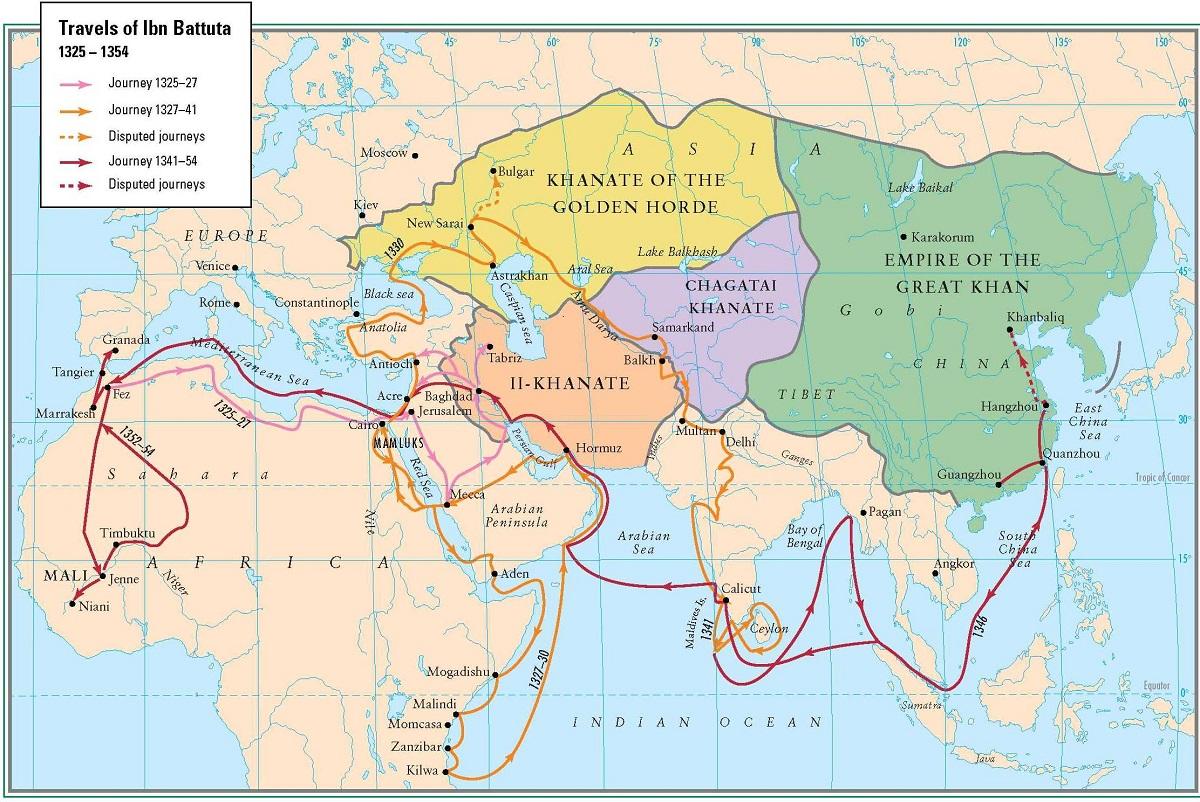
Ibn Battuta, one of history’s greatest travelers, led an extraordinary life with numerous fascinating aspects. Here are some interesting facts about him:
1. Extensive Travels:
- Global Journey: Ibn Battuta traveled over 75,000 miles (120,000 kilometers) across Africa, the Middle East, Central Asia, South Asia, Southeast Asia, and China. His travels spanned nearly 30 years.
- Unprecedented Distance: His journeys covered more land than Marco Polo’s, making him one of the most well-traveled individuals of his time.
2. The Journey Began as a Pilgrimage:
- Hajj Pilgrimage: Ibn Battuta initially set out from Tangier in 1325 to perform the Hajj (pilgrimage) to Mecca. His travels soon expanded far beyond this initial religious goal.
3. Professional Roles:
- Judge and Diplomat: During his travels, he held various official positions, including judge and diplomat. In India, he served as a judge in the court of the Sultan of Delhi, Muhammad bin Tughluq.
4. Detailed Accounts:
- Rihla: His book “Rihla” (The Journey) is a detailed account of his travels, providing a comprehensive view of the medieval Islamic world. It is considered a crucial historical document for understanding the period.
5. Encountered Diverse Cultures:
- Cultural Observations: Ibn Battuta’s writings reflect his encounters with diverse cultures, including the customs, traditions, and practices of different societies across his travel routes.
6. Experience with Different Rulers:
- Interaction with Leaders: He met and interacted with various rulers, scholars, and leaders throughout his travels, including the Mughal Emperor in India and the Yuan Dynasty’s officials in China.
7. Influence on Geography:
- Geographical Insights: His accounts contributed to the understanding of medieval geography, providing descriptions of cities, trade routes, and landscapes that helped map the known world of his time.
8. Challenges and Hardships:
- Adversities: Ibn Battuta faced numerous challenges, including dangerous travel conditions, political instability, and occasional conflicts with local rulers.
9. Return to Morocco:
- Final Years: After his extensive travels, Ibn Battuta returned to Morocco in 1354. He spent his final years in Fez, where he began dictating his travel memoirs.
10. Lasting Legacy:
- Historical Impact: His detailed records have provided historians with invaluable insights into the medieval world. His writings offer a unique perspective on the interconnectedness of cultures and the global interactions of the 14th century.
11. Scholarly Contributions:
- Education and Scholarship: Ibn Battuta’s travels were not just adventures but also scholarly pursuits. He engaged with various centers of learning and contributed to the intellectual exchange of the period.
These aspects of Ibn Battuta’s life and travels highlight his remarkable achievements and the significant impact he made on historical understanding through his extensive explorations and detailed documentation.
Was this helpful?
0 / 0







